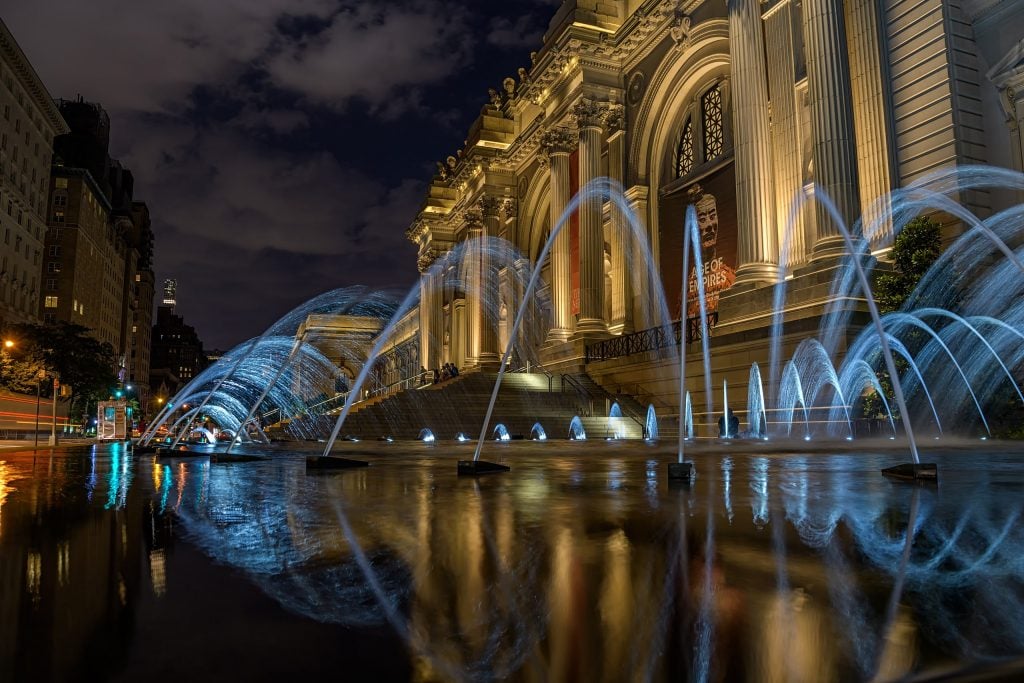Politics
A Petition Demanding That the Metropolitan Museum Be ‘Free for All’ Is Catching Fire
The petitioner argues that the museum's treasures are a public good. Thousands agree.

The petitioner argues that the museum's treasures are a public good. Thousands agree.

Brian Boucher

Rowdy online debates and a thousand editorials have bloomed from the recent announcement that New York’s Metropolitan Museum of Art will begin to charge mandatory admission for out-of-state visitors, upending its longstanding “pay what you wish” policy. The museum’s president, Daniel H. Weiss, says the change is necessary to bolster declining public support and admissions revenue. The institution expects that it will see between $6 and $11 million a year in additional income.
Now, San Francisco art lover Aarti Kelapure is calling on the museum to remain free for all. At publication time, her online petition is closing in fast on its goal of 10,000 signatures, just one day after it was launched. As of this writing, it was gaining several dozen signatures every few minutes.
The petition is hosted by Care2, a site for which Kelapure also works as senior editor of “Causes.”
“The Met is a public good, housing historical and cultural artifacts that should be free for everyone to experience,” writes Kelapure. “Please sign this petition urging The Met to reverse this classist and nativist policy and remain free for all,” she adds, echoing two criticisms voiced by Roberta Smith, co-chief art critic for the New York Times in an editorial.
Remembering her time studying in New York, Kelapure’s petition argues that “a mandatory $25 admission fee would have been cost-prohibitive on my student’s salary.” (In point of fact, however, student admission under the new policy is set at $12.)
Kelapure’s petition comes as debate over the new policy continues to boil. In a letter to the New York Times, historian Victoria Newhouse writes that “[f]or a city that enjoys tens of billions of dollars in revenue from tourism annually, the decision is the worst public relations move imaginable.”
Another letter writer, David Smollar, on the same letters page, says that “[a]s a New York tourist who finds that $25 buys a sad-looking tuna sandwich and a small iced tea (including tip), a three-day entrance fee for the Met at $25 is a bargain beyond imagination for what awaits you inside.” The new ticket buys you entry to the Met Breuer and the Cloisters, good for three days.
The museum’s “suggested donation” policy had been in effect since 1970; Weiss says that the percentage of visitors who pony up the suggested $25 had plummeted by 73 percent over the last 13 years. Admissions provides about 14 percent of the institution’s annual operating budget of about $300 million. The move comes as the museum faces a deficit of about $10 million, and is intended to help the institution to balance its budget by 2020.
The new policy will charge out-of-state visitors $25; seniors will pay $17; students $12. Children under age 12 will be admitted free. The new policy takes effect March 1.
Daniel H. Weiss, the president and CEO of the Met, said in a statement: “In the interest of accuracy, it is important to remind Aarti Kelapure and the others who have signed the petition that the Met is not now free, and it hasn’t been for five decades. Rather, the pay-as-you wish policy is intended to allow members of the public to contribute what they can to support this great institution. Perhaps the problem we are facing now is that people assume that the Met is free when, in fact, it depends on the support of its visitors to open its doors every day.”